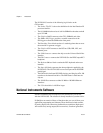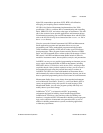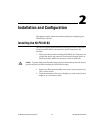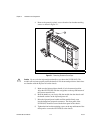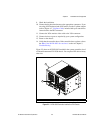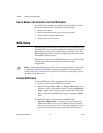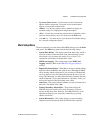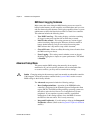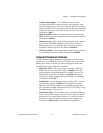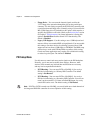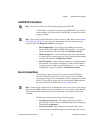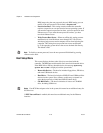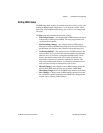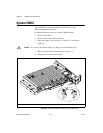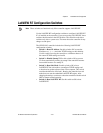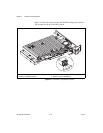Chapter 2 Installation and Configuration
© National Instruments Corporation 2-7 NI PXI-8183 User Manual
• Local Bus IDE Adapter—The NI PXI-8183 controller has
two integrated IDE/ATA channels (Primary and Secondary), each
capable of supporting two ATA devices (Master and Slave). Use this
setting to disable one or more of these integrated channels. You should
modify this setting only if specified in other sections of this manual.
The default is Both.
• Quick Boot Mode—When you enable this option, certain lengthy
BIOS tests that rarely fail are skipped to shorten controller boot time.
The default is Enabled.
• Summary Screen—This setting controls the display of the summary
screen shown after BIOS completes its initialization, but before
booting takes place. You can disable this screen in the interest of
shortening controller boot time. The default is Disabled.
• PXE Network Boot—This setting enables the option for booting from
a network PXE server on the subnet. The default is Disabled.
Integrated Peripherals Submenu
Use this submenu to apply nondefault configurations to the front panel
peripherals of an NI PXI-8183 controller. Normally, you do not need to
modify these settings, as the factory default settings provide the most
compatible and optimal configuration possible.
• Serial Port A & B—This setting enables or disables COM1 and
COM2. You also can change this setting to Enabled and modify
the base address and Interrupt Request Level (IRQ) of a port. The
NI PXI-8183 does not have a COM2, so Serial Port B is always
disabled. The default is Auto, which places COM1 at 0x3F8 IRQ 4
and COM2 at 0x2F8 IRQ 3.
• Parallel Port—Use this setting to enable or disable LPT1. You also
can change this setting to Enabled and modify the base address,
IRQ level, and ISA Direct Memory Access (DMA) channel of the
port. The default is Auto, which places LPT1 at 0x378, IRQ 7, using
ISA DMA Channel 3 if necessary.
• Parallel Port Mode—The PC industry has created several different
modes of operation for this port over the years. Usually, the default
setting works for all applications. However, if a parallel port device
specifically requires a nondefault setting, you can change it here.
The default is Bidirectional, for full IEEE 1284 capabilities.



